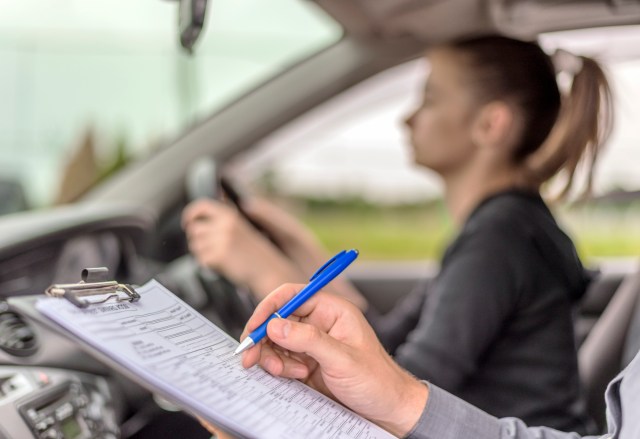A survey by Devitt Insurance questioned 1,432 motorcyclists from across the country, and found that 80% of respondents think that car drivers have a negative view of motorcyclists, while only 7% think that car drivers have a positive one. The attitudes shift just slightly when we ask them whether motorcyclists as a whole have a positive or negative view of car drivers. In this case, the ‘positive’ view rises slightly, to around 18%, while the negative one falls to around 64%.
Interestingly, the ‘don’t know’ responses actually went up when the motorcyclists were asked for the view of motorcyclists, which suggests that bikers are more unwilling to speak on behalf of other bikers than they are to attribute views to car drivers.
What do we really think?
Just as revealing was the question concerning adjectives which describe car drivers. The survey presented a list of potential adjectives and invited the respondents to choose all those that applied. The words came presented alongside their opposite, like so: ‘aggressive’ alongside ‘calm’; ‘focussed’ alongside ‘distracted’; ‘patient’ alongside ‘impatient’; ‘approachable’ alongside ‘intimidating’.
In every case, the negative trait got more votes than the positive one. Motorcyclists are around seven times as likely to consider drivers ‘distracted’ than ‘focussed’, and six times as likely to describe them as ‘impatient’ than ‘patient’. ‘Intimidating’ far outscored ‘approachable’, which might give pause to car drivers who themselves are intimidated by bikers.
What might be causing this?
So why might motorcyclists have come to this mostly-negative view of their fellow motorists. The first explanation is that the poll reflects the reality of the road: that motorcyclists are mostly correct, and that most car drivers really are poorly-focussed, aggressive and, perhaps worst of all, ‘boring’.
The survey revealed that 90% of bikers feel concerned for their safety when in the proximity of a moving car. Amongst these, there was a near even split between those who feel ‘often’ and ‘occasionally’ unsafe.
With that said, there are a few possible sources of bias that motorcyclists might consider.
Tribalism
We’re all vulnerable to the power of tribalism. When football fans gather on opposite sides of the stadium, they experience a feeling of solidarity with a certain colour of shirt, and a feeling of negativity toward the other one. We’ll make excuses when someone on our side dives to win a penalty, but when their chap does it, he’s the devil incarnate. And if football isn’t your cup of tea, then imagine if there were a nation-wide referendum on some contentious topic or other – how divisive would that be?
Life on the road presents different challenges for those driving different vehicles, and so it’s probably unsurprising that we gather together and complain about how reckless the other group is.
Attribute Substitution
Our roads are more dangerous for motorcyclists than other road users: according to the RoSPA, bikers are more than thirty-eight times more likely to be killed than car drivers per mile travelled. And accordingly large numbers of bikers have experienced dangerous situations on the road – most of which will spring to mind easily, as they’ll have been emotionally-charged and vaguely traumatic.
According to Nobel-prizewinning psychologist Daniel Kahneman, we’re prone to subconsciously substitute an easy question when confronted by a difficult one. ‘What are my chances of being hit by a car’ is a very complex one, as it involves delving into the feelings of vast swathes of the motoring public. ‘How easily can I recall an altercation between myself and a car-driver’ is an easy one, and so it’s the one we tend to answer. What makes things worse is that this tends to happen even after you’re made aware of it, and thus the attitudes surveyed are unlikely to shift any time soon!








